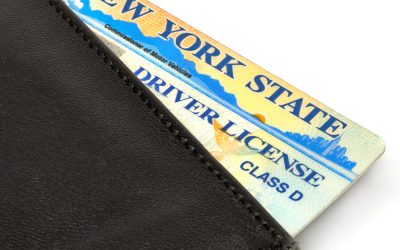When you have been charged with driving under the influence (DUI), you must take action to protect your future. The penalties of a criminal record on your career, reputation, and freedom could devastate your life.
With help from a Huntington Beach DUI lawyer, you can avoid these consequences and put this challenging experience behind you. Contact a Los Angeles DUI Attorney to connect with a lawyer for a free consultation today.
What to Do if You Are Pulled Over for DUI in Huntington Beach
If you get pulled over for a DUI, the best piece of advice is to avoid any behavior that could put you further in jeopardy during the stop. Here are seven things you should do right away:
Carefully Find an Area to Pull Over
During any traffic stop, it is essential to pull over safely and out of the way of other traffic. The officer will be observing how you do this. They will look for unnaturally slow or erratic driving, pulling into an unsafe place, traffic violations, or unusual driving patterns.
This could influence what they write in their report after stopping you. The police report is vital to your hearings and related DUI trials.
Do Not Make Sudden Movements or Act Suspiciously
Orange County police officers know to be cautious and ready to protect themselves if someone acts suspiciously. They will approach your vehicle from the back so they can see you. Avoid any actions that could increase suspicion and put the officer on guard, such as:
- Twisting around in your seat to watch the officer walk up
- Making any sudden movements
- Jumping out of your car or getting out in any way
- Crouching down in your seat
- Reaching for anything in your car
It is best to keep your hands on the wheel, stay seated, and remain quiet as the officer approaches the vehicle. Remaining cool will help your lawyer build a strong legal strategy for your case.
You Have the Right to Politely Decline From Answering Questions
When you are pulled over or detained by law enforcement for suspicion of DUI in Huntington Beach, CA, you may be asked various questions. The police may ask you if you’ve been drinking and how many drinks you have consumed. In this situation, understanding your rights can protect you from self-incrimination.
First and foremost, you have the right to remain silent. You are not obligated to answer any questions posed by the police, especially ones that may incriminate you. Politely inform the officer that you choose to remain silent and avoid providing any potentially damaging information.
Additionally, you have the right to legal representation. If you’re asked questions about your potential intoxication, it is well within your rights to request a Huntington Beach DUI attorney before answering. Requesting a criminal defense attorney signals that you are invoking your right to counsel and that you do not want to proceed with questioning without legal representation present.
Decline the Field Sobriety Tests
Huntington Beach Police Department commonly uses field sobriety tests (FSTs) in DUI investigations to assess a driver’s potential impairment. These physical tests are administered when an officer suspects a driver of intoxication and typically occur outside the vehicle.
When you are directed to step out of your car to perform these tests, you might be asked to:
- Walk along a narrow line
- Stand or hop on one leg
- Follow an object with your eyes
- Say the alphabet
Despite their routine use, numerous issues and limitations are associated with FSTs. Firstly, the accuracy and reliability of these tests can be questionable, as various factors unrelated to intoxication can impact a person’s performance. Physical conditions, fatigue, nervousness, or uneven road surfaces may all contribute to inaccurate results, leading to the possibility of a false positive.
FSTs are subjective, relying on the officer’s interpretation and judgment. This subjectivity opens the door for potential biases or discrepancies in the assessment process, which may unfairly influence the officer’s decision to make an arrest. But even though these alcohol tests cannot definitively prove intoxication, they may still be used as grounds for your drunk driving arrest.
Write Down Everything You Can Remember
When it comes to Huntington Beach DUI cases, the details are important. Everything that happens on the day of your DUI stop, from the hours before you got in your car to well after an arrest, can impact your case. These details can be invaluable for your criminal defense attorney, but memories can quickly fade.
This is why it’s so important to promptly write down a timeline and detailed account of your arrest’s circumstances. As soon after the DUI arrest as possible, record your memories of the incident, including:
- Where you were and what you were doing before you got in the car
- What you drank and how much, including how long it had been between the drinks and getting pulled over
- What the officer said to you and how they behaved
- Where the stop happened
- Whether or not the officer read you your Miranda rights
- What time you took the blood alcohol concentration test
- What you were wearing if you took the sobriety tests/chemical tests
The more details you can remember and write down about the arrest, the more it can help your DUI attorney in Huntington Beach, CA, fight your criminal charges. Even seemingly minor or irrelevant details can be crucial in building a strong defense.
Your DUI attorney in Orange County can use these details to identify inconsistencies in the prosecution’s case, challenge the accuracy of evidence, and potentially question the officer’s credibility.
What Your Huntington Beach DUI Lawyer Can Do After Your Arrest
While you prepare yourself for what the next steps could look like, your criminal defense lawyer will handle your case and ensure your rights are being protected. They will look for holes in the prosecution’s techniques, any violation of your rights, and errors the officer may have made to negotiate a plea bargain or win your case in court.
Even if you are convicted, your attorney will use common defense strategies like these to reduce the severity of your penalties. A criminal defense lawyer can potentially impact your case in your favor by:
- Answering any questions you may have and offering legal advice
- Gathering evidence in a DUI case from other parties involved
- Speaking to your local Huntington Beach DMV, the court, and the police department on your behalf
- Collecting the police report and surveillance video of the accident
- Hiring an accident reconstructionist to put together the scene of the crash
Penalties of a DUI Conviction in Huntington Beach
If you are found guilty of driving under the influence of alcohol in Huntington Beach, CA, the penalties you could be facing are severe. Whether you are a first-time offender or a habitual DUI offender, the state of California takes DUI charges seriously. The extent of your penalties can vary depending on whether you have been charged with a misdemeanor or a felony DUI offense.
Generally, if you are a first-time offender with no injuries or damages, you may be charged with a misdemeanor DUI criminal offense. However, if you are a habitual offender, someone suffered severe injury or death, or other aggravating factors present, you are more likely to receive a felony charge and be sentenced to jail time. Felony convictions are serious and can lead to severe, life-altering penalties.
Speak With a Huntington Beach DUI Attorney Today
A drunk driving charge can have life-altering consequences that extend beyond legal penalties. Don’t risk the permanent disruption to your life that a conviction on a criminal record can bring. Make the smart choice and work with legal counsel who can leverage their immense legal knowledge and criminal defense experience to bring about the best outcome.
At Los Angeles DUI Attorney, we will listen to your situation and then put you in touch with a Huntington Beach DUI lawyer as soon as possible and offer you a no-obligation, free consultation. Let us connect you with high-quality criminal defense lawyers – fill out our contact form to get started.







